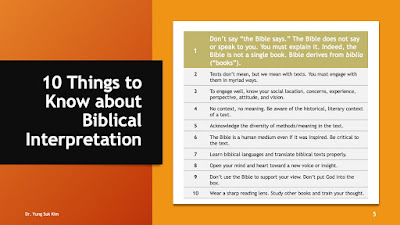Imagination is necessary to enrich our lives. We can live a new life through imagination. Science has been advanced through new imagination. New discoveries of many things were possible through imagination. We can imagine flying like a bird and can do so through airplane or other means of flying. But if one does not do anything with his/her imagination, nothing will happen. Indeed, we can realize our imagination variously.
But how to realize it is crucial. If one goes up a mountain and jumps off from a cliff or mountaintop, that person will be killed in a few seconds. This kind of imagination is so naïve that even one’s life may be lost. But if a person invents new things to ride on or uses a hang glider, he/she can fly like a bird. Thus what we need is imaginative power combined with critical, self-critical thinking.
I observe the importance of critical imagination in my book:
Biblical Interpretation:
Theory, Process, and Criteria
Amos N. Wilder also observes:
Imagination is a necessary component of all profound knowing and celebration; all remembering, realizing, and anticipating; all faith, hope, and love. When imagination fails doctrines become ossified, witness and proclamation wooden, doxologies and litanies empty, consolations hollow, and ethics legalistic … Then that which once gave life begins to lull and finally to suffocate us.
*See Amos Wilder, Theopoetic: Theology and the Religious Imagination (Philadelphia: Fortress, 1976), 2.
Helpful Diagrams for Biblical Interpretation



.png)



